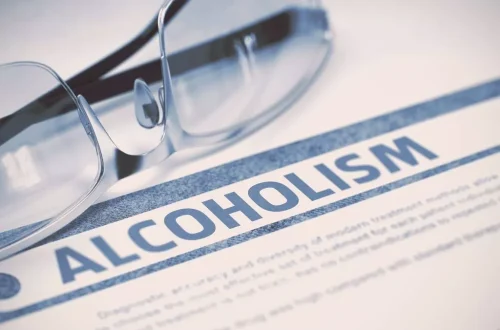Differences Between A Substance Abuse Counselor and A Social Worker

Treatment for more serious conditions may mean staying with a program for a year or more. These professionals work with individuals who experience a range of substance use issues. This may involve substance abuse counseling working with people with alcohol use disorders, but they may also work with clients with substance use disorders involving drugs such as cocaine, heroin, marijuana, and prescription medications.

Substance Use Disorders
- The most effective approach to treating depression is a program that integrates mental health and recovery services at the same facility, with a staff of professionals who are cross trained in both fields.
- To achieve the maximum benefit, aim for at least 30 minutes of aerobic exercise on most days.
- If you are concerned about your substance use, Dr. Linde suggests it can be helpful to ask yourself questions about the negative medical, psychosocial, legal, and financial consequences of drinking and using drugs.
- In short, if your drinking or drug use is causing problems in your life, you have a substance abuse problem.
Some may require intensive inpatient care, while others can find success in a part-time outpatient setting. As you can see, there are a few important differences between a certified substance abuse counselor, therapist, and psychologist. Now you can make the best decision to get the right kind of help for your unique needs. Your substance abuse counselor should be patient because recovery takes time. They’ll offer encouragement and support and celebrate even small achievements.
- Some therapists have the education and training to treat substance use disorders, but not all do.
- Outpatient programs are likely to offer help with medical appointments, family therapy sessions, psychotherapy, and employment counseling.
- Health care providers may prescribe SSRIs and other medications along with psychotherapy.
Common Symptoms of Depression
Licensed addiction counselors are experts at understanding the underlying causes of addiction. They use several techniques to help address the many factors that contribute to and reinforce substance use disorder. Professionals in private practice must be licensed by the state where they work. Those with master’s-level degrees in fields such as psychology, social work, counseling, and related fields can provide individual counseling or may work in private practice. However, individual requirements can vary depending on the state and the employer. An individual’s specific educational background and experience will determine the type of services they can provide.
Stephanie Hairston
- Visit our website or contact us to learn more about earning the education you need.
- People who experience traumatic events or who have PTSD also may experience panic disorder, depression, substance use, or suicidal thoughts.
- A psychologist has a doctoral degree, such as a doctorate in philosophy, a Ph.D., or a doctorate in psychology, a Psy.D.
- They work with individuals, families, couples, and groups in a variety of settings.
Dr. Linde notes that family history often plays a significant role, which can include both biological factors and learned behaviors. A person’s susceptibility to substance misuse has a partial genetic basis, but environmental factors play an important role as well. Coaching as a field is unregulated and does not require training or licensure; coaching can be very beneficial but it’s important to find a credible, experienced individual. Additionally, therapy is often covered by insurance, while coaching is not. Common degrees for a master’s level therapist include a Licensed Clinical Social Worker, LCSW, and a Licensed Marriage and Family Therapist, LMFT. A master’s level therapist’s training may focus primarily on treatment, but they cover theory, development, society, and policy as well.
How can I help a friend or relative who has PTSD?
- Not everyone who lives through a dangerous event develops PTSD—many factors play a part.
- This conversation can be a difficult one to have, but it provides tremendously helpful information.
- Exercise is a natural way to bust stress, relieve anxiety, and improve your mood and outlook.
- That’s why it’s essential to know their credentials, education, and years of experience.
- In addition to the clinical experience offered by a doctoral program, I wanted to take part in research opportunities, as well.


Response to "Differences Between A Substance Abuse Counselor and A Social Worker"